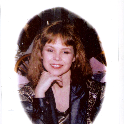Check Your Privilege
“Put yourself first.” It's a mantra that most of us live by and practice daily, and in the midst of a crisis, our own survival and wellbeing become especially imperative. But just because we put ourselves first doesn't mean that we should forget about others. The world functions the best when people help out one another and make an effort to show that they care. This seemingly simple concept is challenging for many, myself included. In the early days of the pandemic, the only thought on my mind was how much of an inconvenience it was on my life. I didn't realize then how fortunate I was because I was too focused on myself to stop and wonder for a single second how others were managing. This wallowing in self-pity lasted for a couple of weeks until my stay-at-home mom suggested that I help her deliver food. My mom has been an active participant in the food assistance programs at our church over the past few years. She'd gotten especially involved in the Fern Street Backpack Program, which delivers backpacks full of food to food-insecure families with children enrolled in the school district. When remote learning went into effect, my mom switched to home deliveries. But delivering forty-plus bags of food all over our town was no easy feat, and my mom needed help. Seeing as I'd been laid off from my three part-time jobs and was holed-up at home, I was the perfect assistant. Prior to this, I had little involvement with food assistance. Sure, I knew what it was, but I'd never experienced it myself or been close to anyone who had. The neighborhood where I live is upper-middle-class, predominately white, educated, and privileged. This was the environment I'd grown up in. It was all I really knew. I'll always remember the first few days of our deliveries and how shocked I was at how drastically different living conditions were just on the other side of my town. Every Wednesday and Friday, my mom and I would drive to each location, lug heavy paper bags—two per family—overflowing with food out of our car, and leave them on doorsteps or outside of housing complexes. We'd wait for someone—usually a mother, some of whom weren't much older than me— to collect the bags, then drive off to our next destination. On one day in particular, it was incredibly hot—blistering, even. My latex gloves were damp with sweat and my bare legs stuck to my car seat as my mom pulled into an apartment complex where four families resided. She eased over a speedbump, being extra cautious since we had eggs in the back, and parked under the shade of a tree. The mother of the first family, who I'll call Nadine, lived in the basement of one of the apartments. She was disabled and had a hard time walking, so we routinely delivered her food through her window. As my mom unloaded two bags from the car, I called Nadine on her phone to let her know that we'd arrived. “Wonderful!” she exclaimed enthusiastically! “I'll be right there.” A few moments later, she opened the window with a broad smile on her face. I could tell that she was warm by the sweat that had formed on her hairline. While most of the families kept to themselves, Nadine loved sharing the details of her personal life with us. She had cancer and underwent chemo semi-regularly. She was a recovering alcoholic and a devout Christian, always ending her conversations with us with a “God bless you.” She had a daughter not that much younger than me. She had a tough life, and yet, she was one of the most positive people I've ever met. On that particular blisteringly-hot day, we had a couple of cartons of ice cream from a Trader Joe's pickup we'd made earlier in the week. We gave Nadine one—butter pecan, I believe it was—and her eyes lit up with excitement. We received two “God bless yous” that day—one for the ice cream; the second as we were heading back to the car to finish our deliveries. When we drove past her window, which was still ajar, Nadine's smile was unwavering. I couldn't remember the last time something I'd done had had that effect on someone, but it was an amazing feeling knowing that I'd made a difference. It's been over a month since we made our final delivery. My mom plans to start back up in the fall, and I'll probably join her. Assisting these families has done more than just connect me with my community; it's humbled me and reminded me of my privileges. No one is enjoying this situation. That said, I'm lucky to have employed parents, access to basic resources like food, and be in decent physical health. It seems only right that someone like me should make an extra effort to support those who aren't so well-off. After all, just because we can't be near each other doesn't mean we can't still look out for each other.








